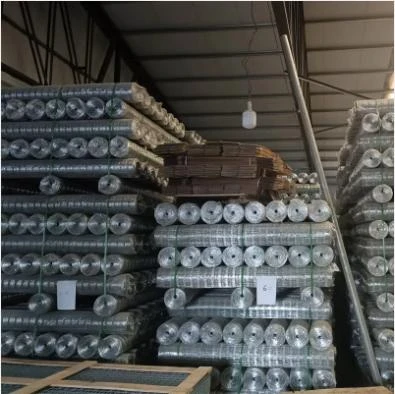10 月 . 16, 2024 23:38 Back to list
Essential Guide to Choosing the Best Wire Mesh for Chicken Coops
The Essential Guide to Chicken Coop Wire Mesh Choosing the Right Material for Your Flock
When you decide to embark on the rewarding journey of raising chickens, one of the most crucial components of your chicken coop is the wire mesh. Selecting the right kind of wire mesh not only ensures the safety and well-being of your flock but also enhances the overall functionality of your coop. In this article, we will explore the different types of chicken coop wire mesh, their benefits, and some tips for choosing the right material for your specific needs.
Understanding Chicken Coop Wire Mesh
Chicken coop wire mesh, also known as poultry netting or chicken wire, is a type of fencing used to enclose chickens and protect them from predators. It is typically made from galvanized steel, coated wire, or plastic mesh. The mesh size, gauge, and material quality should be carefully considered to create a secure environment for your chickens.
Types of Wire Mesh
1. Chicken Wire (Hexagonal Wire Mesh) This is the most common type of wire mesh used in chicken coops. It features a hexagonal pattern that provides a sturdy yet lightweight option for enclosing chicken runs. Chicken wire is relatively inexpensive and easy to work with, making it an excellent choice for DIY projects. However, it may not be the best option for areas with larger predators since the hexagonal pattern can be easily manipulated.
2. Hardware Cloth A stronger alternative to chicken wire, hardware cloth is made of welded wire and is available in various mesh sizes. Its durability makes it an excellent choice for coop construction, especially in areas where raccoons, foxes, and other predators may pose a threat. The 1/2-inch square mesh is particularly effective at keeping out small predators while allowing proper ventilation.
3. Electrified Fencing For those in areas with high predator activity, electrified fencing can be an effective deterrent. This type of fencing combines traditional wire mesh with electric wires to deliver a mild shock to potential intruders. While more expensive, it offers enhanced security and peace of mind.
4. Plastic Poultry Netting Lightweight and flexible, plastic poultry netting is another option for chicken enclosures. It is easy to install and can be a cost-effective solution for temporary setups. However, it usually lacks the strength and durability of metal wire mesh, so it may not be suitable for permanent coops in predator-heavy environments.
chicken coop wire mesh

Key Considerations When Choosing Wire Mesh
1. Predator Protection The primary purpose of wire mesh is to protect your chickens from predators. Assess the risk level in your area and choose a mesh that offers adequate protection. If you have larger predators nearby, opt for hardware cloth or electrified fencing.
2. Mesh Size Choose the right mesh size to keep out various pests. Smaller openings (1/2 inch or less) are ideal for preventing access from small rodents, while larger openings can still deter birds and larger animals.
3. Durability Consider the material's lifespan. Galvanized steel options resist corrosion and last longer than plastic mesh. Although initial costs may be higher for stronger materials, the investment pays off over time.
4. Ease of Installation Depending on your skills and tools, you may want to choose a wire mesh that is easy to install. Chicken wire and plastic netting are generally easier to handle than heavy hardware cloth.
5. Ventilation Your chickens need proper airflow in their coop to stay healthy. Ensuring your wire mesh is appropriately sized will help maintain good ventilation while also providing safety.
Conclusion
Investing in quality chicken coop wire mesh is crucial for the safety and well-being of your flock. By considering the various types of wire mesh available and assessing your specific needs, you can create a secure, comfortable environment for your chickens. Remember, your flock depends on you for protection; taking the time to choose the right mesh will ultimately ensure a thriving, happy chicken family. Whether you're constructing a permanent coop or a temporary shelter, selecting the appropriate wire mesh plays a vital role in successful poultry farming. So, take the plunge and make an informed decision for the health and safety of your feathered friends!
-
Secure Your Roof with Quality Roofing Nails
NewsNov.04,2024
-
Secure Your Property with Quality Field Fencing
NewsNov.04,2024
-
Enhance Your Space with Quality Mesh Fencing
NewsNov.04,2024
-
Discover the Versatility of Iron Wire for Your Projects
NewsNov.04,2024
-
Discover the Versatility of Common Nails for Your Projects
NewsNov.04,2024
-
Discover Quality Hydraulic Fittings for Your Applications
NewsNov.04,2024









